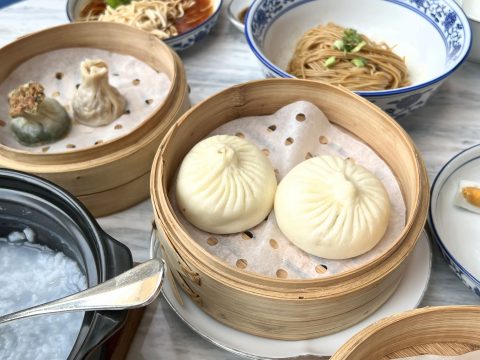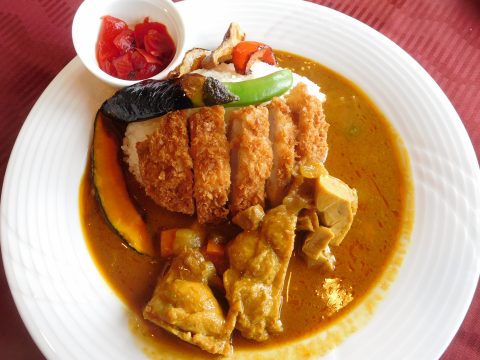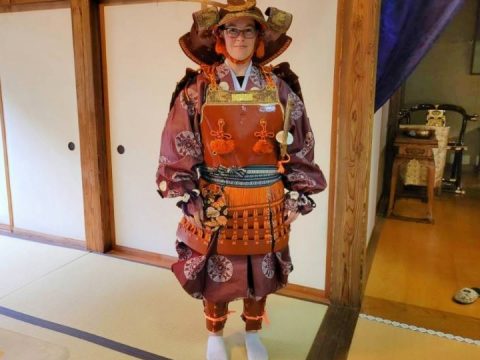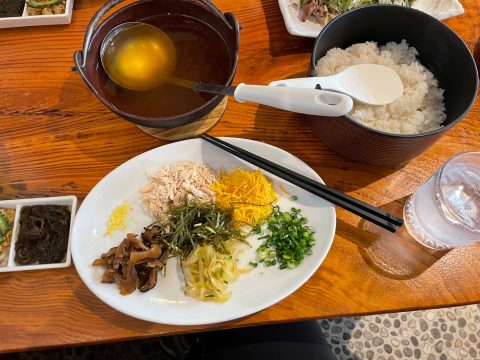Japanese Working Holiday Visa
WORK’IN JAPAN
01.02.2024

※This article was not written by a legal professional. It was written in December 2023. Please check the latest and official information on the website of the Ministry of Foreign Affairs in Japan and other governmental sources.
So, you’ve always wanted to go to Japan. Or maybe you’ve already been—for a holiday, or a homestay—and you want to work out if it’s the place for you. But maybe you aren’t the best at Japanese yet, or you don’t even know where to start with visas and documents, and besides, without a job already lined up that’s willing to send you to Japan, how are you meant to justify a long stay?
Well, you might be in luck.
For those eligible, the Japanese government can issue those who want to spend an extended period in Japan a Working Holiday Visa. With a Working Holiday Visa, young people from certain countries to live, work, and travel in Japan for an extended period. The Working Holiday Visa allows individuals to experience life and travel in Japan through temporary, remote, or permanent employment.

Eligibility
There are first some eligibility criteria that you must satisfy to be considered for a Working Holiday Visa, such as:
- Age Applicants must be between 18 and 30 years old (or even 18 to 25 for some countries) when they apply.
- Nationality Applicants must hold citizenship from one of the following countries: Australia, New Zealand, Canada, Republic of Korea, France, Germany, the United Kingdom, Ireland, Denmark, Taiwan, Hong Kong, Norway, Portugal, Poland, Slovakia, Austria, Hungary, Spain, Argentina, Chile, Iceland, Czech Republic, Lithuania, Sweden, Estonia, Netherlands, Uruguay, Finland, and Latvia. (The list of countries changes almost every year. Please check the latest information.)
- Financial Requirements Applicants generally have to display that they possess enough money to cover their initial stay in Japan. This can be proven with a bank statement or by proving you have a certain amount of proving funds in your bank account at the time of application. This typically isn’t too high.
- Health Participants must be in good health before applying.
- There are other requirements as having no criminal record, obtaining a returning ticket, and not having a working holiday visa in the past. Please check the latest information.
Knowledge of the Japanese language is not a requirement, but a rudimentary knowledge of Japanese would be useful when you arrive.
Duration
The visa is usually valid for six months to one year, depending on the country of origin. Some participants may have the option to extend their stay under certain conditions, and if you find employment while there, you may be able to switch to a work visa through a new visa application. (Please note that the primary purpose of your stay should be for a holiday, with work being a secondary activity to support your travels. The visa is not intended for individuals seeking long-term employment in Japan)

Employment Opportunities
The Working Holiday Visa is primarily aimed at those who want to engage in temporary work to experience life and travel in Japan. However, if your application is successful you may have the opportunity to engage in full-time and temporary work as you wish in Japan for the duration of your stay. Your job while there should primarily be to support you financially for the duration of your stay.
Job options include various industries, such as hospitality, agriculture, language teaching, and tourism. (There may be some restrictions on the type of work or industries you can engage in, so please make sure to double-check.) Many English native speakers opt to teach English in Japanese schools as the position is always highly sought after. The visa allows for flexibility in the job market, meaning that it’s easy to try different jobs and relocate for a change of pace and scenery.

The Application Process
Securing a Working Holiday Visa involves a thorough application process. Applicants have to submit the required documents, including a completed application form (which should be available on your country’s Embassy of Japan website), a valid passport, a CV, proof of financial means, and a travel itinerary (that details of where you plan to stay, why you want to go to Japan, and what kind of work you plan to partake in).
The process may also involve a visa interview to assess the applicant’s suitability for the program, but don’t worry! All assessments will be done in your native language.

Things To Be Careful Of
While the Working Holiday Visa can be the start of an amazing adventure, it’s undoubtedly that moving to a new country can be daunting and present many challenges. Language barriers, cultural differences, and a completely new work environment might be scary, so applicants need to research and prepare adequately for their time in Japan.
It is also essential to remember that this is a working holiday visa, where the primary aim is for working to coincide with cultural exchange and travel. It can be fine if you land yourself full-time employment while in Japan, but at the application stage, those who assess you are trying to gauge whether your interest in Japan and Japanese culture isn’t taking a backseat to your working drive!

A Working Holiday Visa in Japan can be a fantastic experience for those with an interest in Japan and Japanese business life that combines employment with cultural immersion.
Take the chance to indulge in busy city life in the business district of one of the largest cities in the world—Tokyo. Or excel in helping to shape the minds of the next generation in the classroom. Or even take the nomadic route, working remotely and seizing a life of spontaneity, travel, and countless experiences. With a Working Holiday Visa, Japan can be your oyster. So, what are you waiting for?

Ella Clayton
Ella Clayton is a food writer, traveler, and all-around Japan enthusiast. Studying in Japan for her bachelor’s degree, she has ventured from Kansai and Kanto, and can say definitely: Osaka style Okonomiyaki is the best.
Read previous articles by the writer
Read latest articles
KEYWORDS
- # PICKPICK
- # Resume
- # alcohol
- # Rice
- # Soup
- # winter food
- # Fast Food
- # seafood
- # spicy foods
- # raw food
- # fermented food
- # Transportation
- # MEAT
- # Edo culture
- # suits
- # clothing
- # drink
- # fish
- # seasoning
- # Japanese New Years Foods
- # Toshikoshi soba
- # Osechi Ryori
- # Ozoni
- # Christmas
- # Japanese fusion pasta
- # Wafu Pasta
- # Japanese Hot Pot
- # なべ
- # 鍋
- # Miyazaki
- # Chicken Nanban
- # Karamen
- # Autumn Wagashi
- # Mushi-yokan
- # Imo-yokan
- # Japanese Autumn Fruits
- # Autumn
- # Vending Machine
- # fall
- # dango
- # Chestnut rice
- # saury
- # Mushroom
- # Rice vinegar
- # Japanese condiments
- # 調味料
- # Sake
- # Mirin
- # Soy sauce
- # Japanese Noodles
- # Udon
- # Ramen
- # Yakisoba
- # Soba
- # Japanese Seaweed
- # 海藻
- # かいそう
- # Payslip
- # Training
- # Japanese summer foods
- # 和菓子
- # Wagashi
- # ryokucha
- # 夏
- # 飲み物
- # Ramune
- # ラムネ
- # Pokari Sweat
- # ポカリスエット
- # Calpis
- # カルピス
- # Mugicha
- # ume
- # 梅
- # うめ
- # umeshu
- # job hunting
- # tofu
- # Recruitment in Japan
- # miso
- # Japanese cuisine
- # Yellowtail and bonito
- # Children’s Day
- # Kashiwa Mochi
- # Chimaki
- # fruits
- # Kusamochi
- # Types of Agriculture in Japan
- # bread
- # パン
- # パン屋さん
- # japanese bread
- # shokupan
- # meal blead
- # anko bread
- # 桜
- # さくら
- # cherry blossom
- # visa
- # hanami
- # omotenashi
- # sakura
- # おもてなし
- # Japanese hospitality
- # oshibori
- # wet hand towel
- # hand towel
- # restaurant
- # Commuting in Japan
- # Women-only cars
- # Exit gate
- # japanese train
- # train
- # valentine
- # Japanese sweets
- # 朝食
- # Japanese Breakfast
- # Breakfast
- # Japanese
- # 日本
- # healthy
- # persimmons
- # hoshigaki
- # HR
- # work in Japan
- # jinji ido
- # corporate systems
- # Japanese work culture
- # bento
- # ekiben
- # shinkansen
- # omiyage
- # train station
- # Japanese culture
- # work culture
- # mentaiko
- # umeboshi
- # Japanese snacks
- # potato chips
- # Japanese potato chips
- # Japanese writing
- # seaweed
- # konbu
- # ocean foods
- # shio konbu
- # dashi
- # miso soup
- # food processing
- # pear
- # nashi
- # sweet potato
- # japanese sweet potato
- # stingray
- # satsuma imo
- # food value chain
- # homecooking
- # agriculture
- # Japanese homecooking
- # farming
- # nikujaga
- # shojin ryori
- # meat and potatoes
- # traditional foods
- # comfort food
- # buddhist food
- # manufacturing
- # factory
- # eihire
- # vegetarian
- # food and beverage
- # izakaya
- # yatai
- # japanese festival
- # taiyaki
- # matsuri
- # summer
- # Ikayaki
- # smart agriculture
- # shaved ice
- # kakigori
- # かき氷
- # summer dessert
- # Japan
- # Japanese foods
- # dessert
- # fruit
- # matcha
- # icecream
- # Pikcup
- # Pikc up
- # Pcikup
- # skilled labor visa
- # working visa japan
- # Dineer Table in Japan
- # Japanese manner
- # Japanese food
- # Japanese Table Manner
- # Chopsticks
- # Japanese traffic signs
- # traffic information
- # road rules in Japan
- # chocolate
- # green tea
- # Osaka
- # Work Japan
- # Japanese company
- # ikura
- # sushi
- # nigiri
- # wasabi
- # PCIK
- # PICK UP
- # PICK
- # PICKUP








